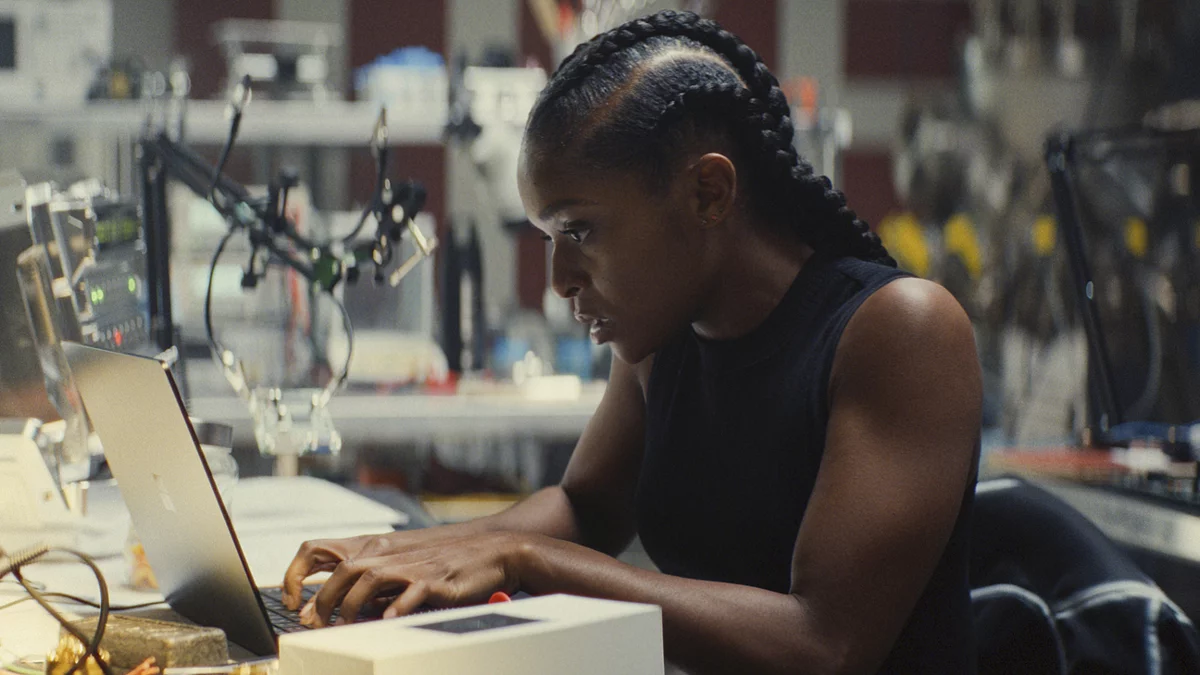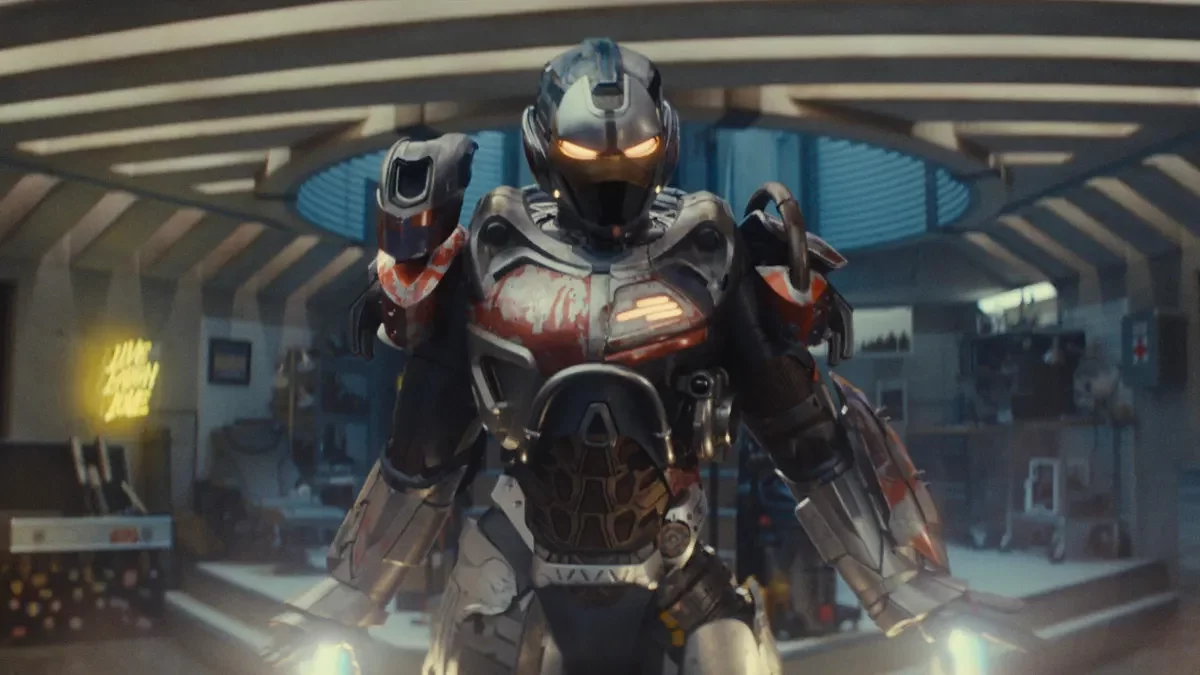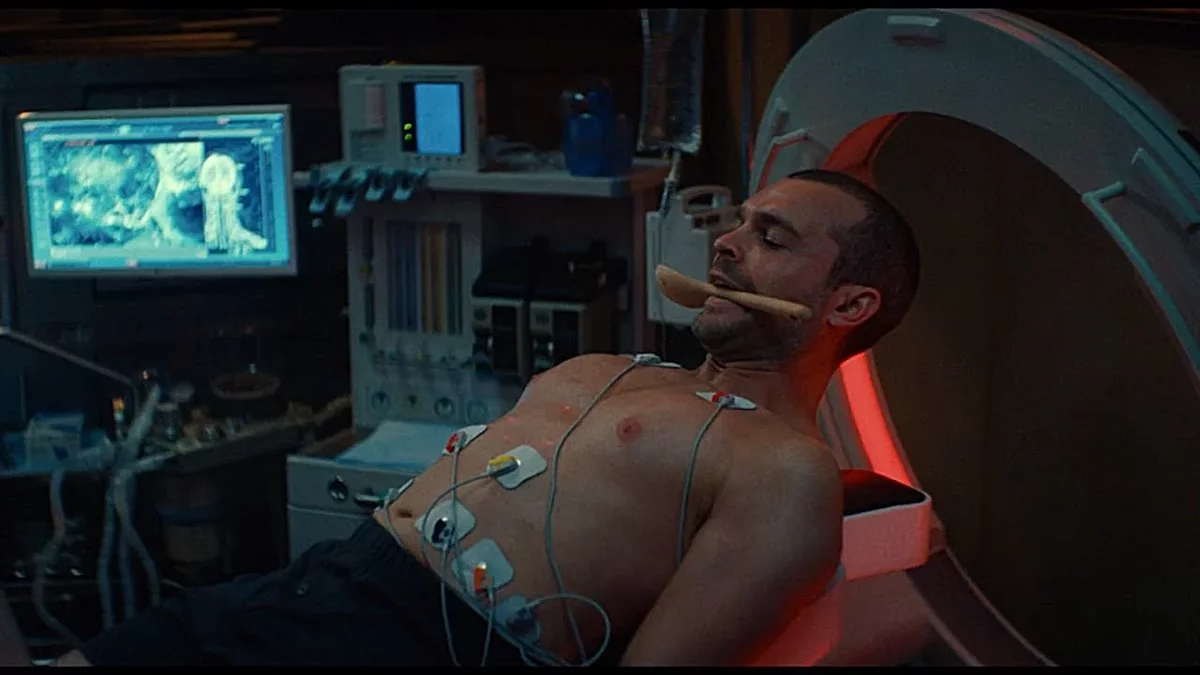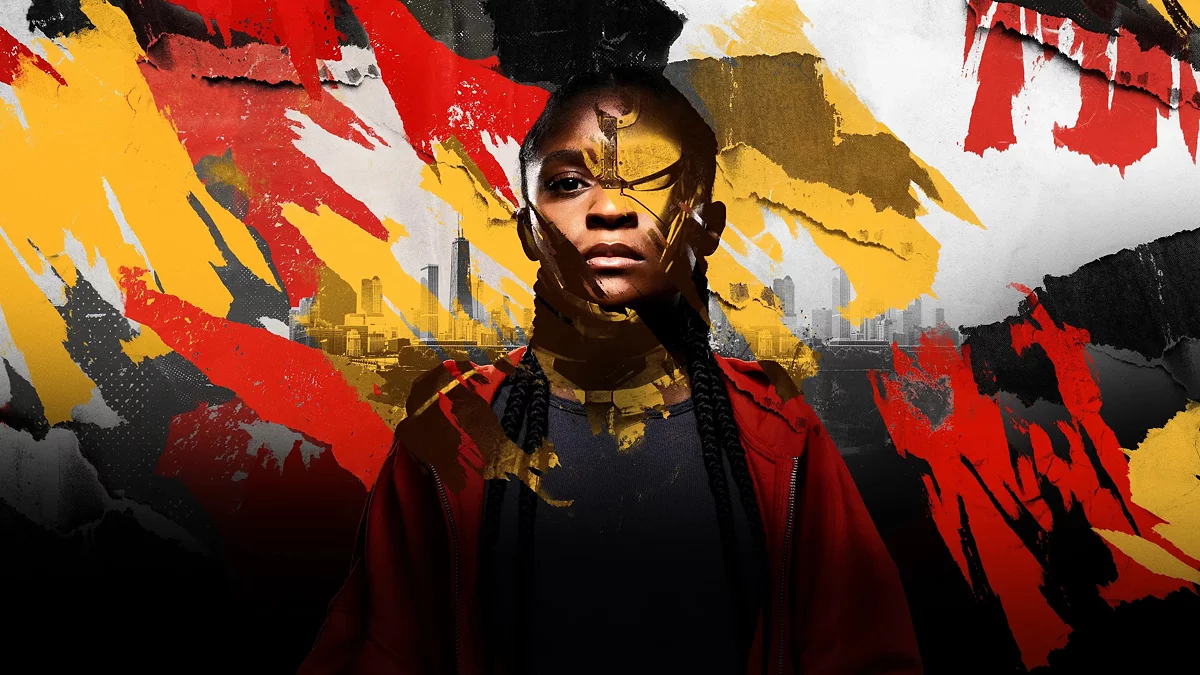
Ironheart dizisi hakkında görüş — Mahallede meyve suyunuzu içerken Güney Tony Stark'a bir tehdit olmayın
 Dmitry Pytakhin
Dmitry Pytakhin
The recent shift in public sentiment and massive financial losses forced Disney to rethink its approach to Marvel Cinematic Universe shows and films. Unfortunately, some projects were already too far along to cancel. Ironheart is a true swan song of the "old Marvel" — its gravestone, joyfully erected by screenwriters over everything that once made superheroes popular and exciting. The show is already fully released, we’ve watched it, and now we’re here to tell you about it. Sorry, Tony Stark — you were never meant to save us.
Riri Williams had already made a brief appearance in the MCU. You might’ve noticed the girl in Black Panther: Wakanda Forever, where she was interning in Wakanda. Naturally, not just anyone gets that opportunity. Riri is a talented inventor who managed to earn a Stark scholarship and a place at one of the most prestigious universities. Seems like a dream life — but not quite.
The series picks up sometime after her internship ends, and Riri… well, she’s stealing university resources. From the very first seconds, it’s made clear that Tony Stark would’ve never become Iron Man without his millions. So Riri has to hustle: stealing, breaking university rules, and doing paid assignments for other students. All of this is supposedly in service of her invention — yet another iron suit, which is no longer the pinnacle of engineering and is casually cobbled together in a university lab. If you haven’t cringed by this point, rest assured — it gets worse.

It goes without saying that the essence of Iron Man — and especially his heroism — was never about the money, but about the fact that he built his first suit in a cave, while practically dying. After that, he gave up mindless weapons manufacturing and devoted himself to philanthropy. But the show’s writers seem embarrassed by their own rules, since everything Riri has comes directly from Stark’s scholarship. Reducing the MCU’s central founding hero to just another rich guy is peak Marvel decline.
At this point, it’s fair to ask: why is Riri even making a suit? That’s a very good question — because in the comics (which, by the way, weren’t very popular), she was a Tony Stark fangirl who studied his technology obsessively, then eventually met him. Of course, the trendy writers couldn’t allow that, so MCU Riri doesn’t care about Tony at all. She’s not even interested in him, and builds the suit just "because she can" (actual quote). So they removed her core motivation — admiration for Iron Man — and replaced it with… nothing. Later, they’ll briefly mention that Riri’s stepfather idolized Stark, but it’s done quickly and in passing. As if African Americans can’t have a wealthy white male role model.
And here comes another layer of the story — Riri is African American. That is, we’re looking at a Black girl who steals, can’t find a proper job, and despises white men for their wealth. The pile of stereotypes is nauseating. On top of that, the heroine lives in Chicago, and throughout the entire six-episode run, there are only two white characters — one is an unpleasant professor who kicks the young prodigy out of school, and the other spends half the screentime whining and the other half being the villain. You know, classic Marvel diversity and equality.
Marvel, enough already?
Since you’re probably not going to watch the series, we’ll summarize the whole story for you — don’t worry about spoilers ruining any enjoyment. Somehow, Riri stumbles upon a gang of thieves who offer her a job as their tech specialist. Though they already have a hacker, so Riri won’t actually be doing anything technical. The only reason they need her is for the suit. Without it, the girl is useless to the criminals.
The gang is yet another exercise in equality and representation. It includes two vaguely Mexican guys, two nonbinary they/thems who — despite their petite build — serve as the main muscle, effortlessly knocking out trained guards (but never Riri), a demolitions girl (of course, also Black), and the shining star of the team — a genuine transformer with no defined gender, or more plainly, a guy in heavy makeup who handles all the hacking. They all act like villains from the get-go, but tell Riri they only steal from the rich and successful. Of course, they don’t share the spoils with the poor — they keep it all for themselves. Our heroine buys into the idea of cashing in and convinces herself that since she’s not killing anyone, she’s not a villain. Ah, the modern definition of a superhero.
The gang’s standout feature is their leader — a supposedly intimidating dude (not really) in a silly cloak, known as The Hood. The cloak gives him invisibility and the ability to curve bullets like in Wanted. Despite the actor’s effort, he utterly fails to deliver a proper villain. The Hood looks like a low-budget cosplayer who could only afford one piece of the costume. His brooding brows and dramatic stares earn nothing but smirks. Maybe it’s intentional — without the cloak, he’s just another street thug. But across all six episodes, the feeling remains: they could’ve done better.
What happens next is pretty predictable. Riri’s secret gets out, and her lovely new friends decide to kill her. A series of plot events conveniently fills the six episodes, but none of them matter for the general understanding. Naturally, Riri defeats everyone — all while building a new suit that doesn’t run on Stark’s silly infinite energy but instead is powered by a fragment of the Hood’s cloak, i.e., magic. That’s right. Eventually, though, something actually interesting happens. Mephisto is introduced — the cloak’s original owner and the show’s true tempter. He acts like a full-blown Lucifer, and this is where Marvel stumbles again: their shows have almost no connection to the movies. A being of Mephisto’s caliber showing up in a city should’ve prompted a tactical strike from every mage in Kamar-Taj — but nobody cares, and Riri ends up fighting the "devil" alone.
Meanwhile, other subplots unfold. Riri somehow creates a super-advanced AI and practically resurrects her deceased friend. It’s not J.A.R.V.I.S. or Friday — this AI develops its own personality, emotions, and worldview. Then, for no explained reason, the magical suit destroys the AI. This becomes the basis for Mephisto’s deal: Riri sells her soul to bring her friend back, without even bothering to understand what really happened. It’ll be interesting to see what happens when Mephisto pays a visit to Pepper Potts.
Also appearing in the project is Ezekiel Stane — the son of Iron Man’s very first villain. His character is heavily reworked, turning him from a genius into a total pushover. Zeke doesn’t want to follow in his father’s footsteps and somehow knows Stark killed him for betrayal (again — how?). He’s interested in biotech to improve human life, but he’s too scared to try it on himself.
Riri blackmails him in true "hero" fashion and forces him to share some of his equipment. This ends with her forgetting a patch of bioskin at one of the heists, which somehow leads the police right to Zeke. How exactly that happens — and why law enforcement can trace Stane’s black market activity but never finds Riri’s fingerprints — is a mystery worthy of Jacques Fresco.
Naturally, after all that, Zeke blames Riri for everything, teams up with The Hood, and implants a mountain of biotech into his own body, becoming a sort of Iron Man — but without the suit. Eventually, he ends up somewhere around antihero territory, or at least that’s what the show tries to suggest. He doesn’t kill Riri when he has the chance, and The Hood later seizes control of his biotics, turning Zeke into a puppet. The afro-superheroine saves her former friend, and that’s that. Honestly, Zeke is the only one in this mess who evokes real sympathy. He lived quietly, was a decent — if shy — guy, then got robbed and framed by a random girl, losing everything he’d built.
And of course, Riri has a friend who effortlessly casts complex spells and opens portals to a secret room in another dimension. Yep, you guessed it — she’s a Black girl too, who’s never trained or studied anything like this, just skimmed a couple books. Remember Doctor Strange’s years of grueling training? Forget it — Black folks are apparently born with all the skills.
Honestly, we don’t even know what else to add here. Riri is a terrible character — plain and simple. She lies, breaks promises, and steals. All of this is amplified by the cast’s "distinct" way of talking, which sounds a lot like the film we referenced in the title of this review.
Marvel once again tried to pander to minorities and diversity quotas, but ended up creating a painfully offensive and muddled stew that should make actual Chicagoans recoil like from sour soup. Worst of all is the fact that Kevin Feige saw this coming. The project went through major reshoots, meaning the head of the MCU knew things were going off the rails. Why he still greenlit the final version and didn’t pull the plug when he had the chance — that’s the real mystery.
Now it’s too late to erase Riri, Zeke, or Mephisto from the MCU canon. They’ll have to be used in future projects, because pretending Ironheart never existed is just too obvious. Funny how everyone close to Stark in the show ignores her existence, but the movies are a whole different level. Maybe they really will quietly sweep Ironheart under the rug and pretend this nightmare never happened. Unfortunately, that’s Marvel’s biggest problem right now — a mountain of awkward characters created by writers hired for diversity instead of talent. What’s going on in Kevin Feige’s head and whether there’s any actual plan beyond a total reboot — no one knows. But right now, the MCU is at its absolute lowest.
Even the decent costume design can’t save the show from failure. Riri’s invention doesn’t differ much from Stark’s old suits — and honestly, it looks the same. You can’t impress today’s audience with this stuff anymore.
***
Ironheart is a complete failure. The show is far worse than Moon Knight, Loki, and most of the other Disney+ projects — rivaling only She-Hulk: Attorney at Law. Which, frankly, isn’t surprising, since the writing team is mostly the same. We have no idea who this show is even for — Black audiences should be tired of these stereotypical portrayals of their communities and struggles. Everything has its limit, and Marvel — under Kevin Feige’s leadership — crossed that line long ago. It’s hard to root for the main heroine, and the rest of the cast are just a bunch of token characters with no meaning or depth. The bottom has officially been hit. Whether the MCU can recover from this looming threat of irrelevance — only time will tell. The Fantastic Four: First Steps is supposed to be the new jumping-off point for the next phase. We can only hope that everyone involved in Ironheart gets fired and never touches superheroes again.
Have you watched Ironheart?







